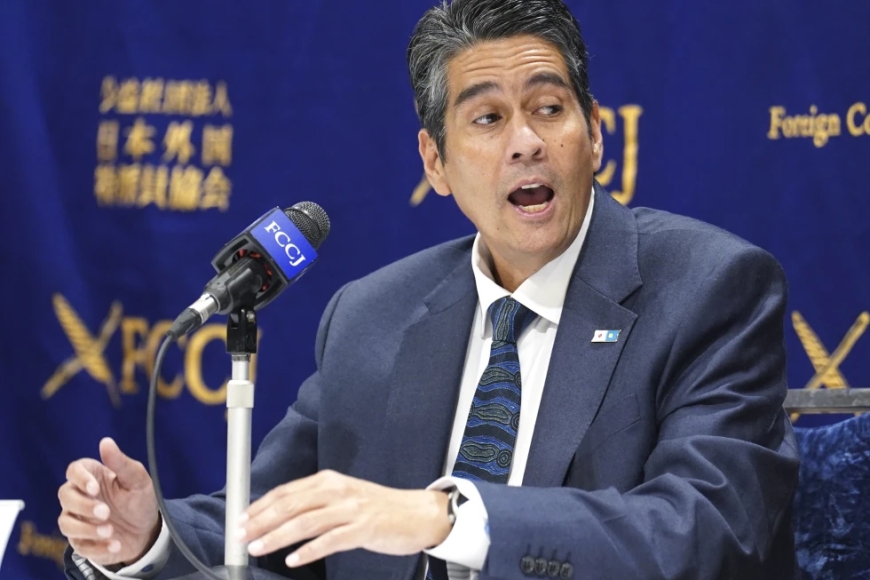Palau’s President Surangel Whipps Jr. has accused China of using tourism as a tool of coercion against his country due to its continued recognition of Taiwan and its accusations against China regarding a significant cyberattack. In an interview with The Associated Press, Whipps described how Beijing allegedly sought to leverage its economic influence to sway Palau’s foreign policy.
According to Whipps, during his 2020 presidential campaign, the Chinese ambassador to a neighboring country offered to flood Palau with a million tourists in exchange for a shift in Palau’s stance towards Taiwan. Palau, along with Tuvalu and the Marshall Islands, is one of the few Pacific nations maintaining diplomatic relations with Taiwan, which China considers a breakaway province.
Whipps rejected the offer, emphasizing that the nation's values and foreign policy should not be dictated by financial incentives. He asserted, “We don’t need a million tourists. It’s not always about how much money we get.”
Tourism and Cyberattack Fallout
The alleged pressure from China has escalated over recent months, particularly with the approach of Palau’s presidential election in November. Whipps claimed that China was responsible for a major cyberattack on Palau in May 2024, which resulted in the theft of 20,000 government documents. While the accusation remains unproven, Whipps noted that no other suspects or motives had emerged.
In addition to the cyberattack, China reportedly hindered Palau’s tourism industry by denying visas to Palauan representatives and spreading negative safety reports about the country. These actions have led to a significant drop in Chinese tourists, who previously made up 70% of Palau’s visitors. As of 2024, that number has halved, with only 30% of tourists coming from China.
Palau's Diplomatic Stance
Despite these pressures, Palau continues to strengthen its ties with Taiwan and other allies such as Japan and Australia. The country has also diversified its tourism market, opening new routes and fostering relationships with countries like New Zealand. Whipps highlighted the importance of education and security for Palau’s youth and marine resources, noting recent incursions by Chinese vessels into Palauan waters.
Whipps acknowledged that while China's tactics are aggressive, Palau remains committed to its diplomatic principles. He stated, “We’ve always had the belief that we should be friends to all and enemies to none.” As the election approaches, Whipps is focused on domestic issues such as tax reform rather than foreign influence.
Geopolitical Context
China’s influence in the Pacific has been growing, with several nations switching allegiance from Taiwan to Beijing in recent years. The shifting dynamics in the region reflect broader geopolitical competition, with Western nations, including the U.S., grappling with China's expanding reach.
Recent elections in other Pacific nations, such as Kiribati and the Solomon Islands, have also seen shifts in diplomatic alignments, often influenced by economic and trade considerations.
Palau’s stance, as articulated by Whipps, underscores the challenges faced by small island nations navigating complex international relations while balancing their economic needs and political values.














































